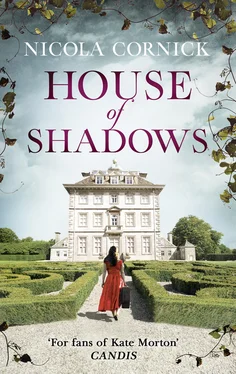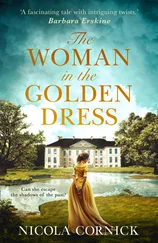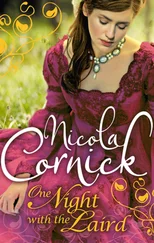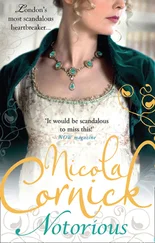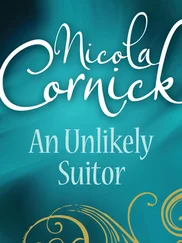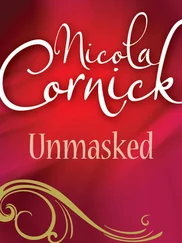
NICOLA CORNICKis a historian and author. She studied at London University and Ruskin College Oxford and works for the National Trust as a guide at the seventeenth century hunting lodge Ashdown House in Oxfordshire. Her award-winning books are international bestsellers and have been translated into 26 languages.



ISBN: 978-1-474-03808-9
HOUSE OF SHADOWS
© 2015 Nicola Cornick
Published in Great Britain 2015
by HQ, an imprint of HarperCollins Publishers Ltd 1 London Bridge Street London SE1 9GF
All rights reserved including the right of reproduction in whole or in part in any form. This edition is published by arrangement with Harlequin Books S.A.
This is a work of fiction. Names, characters, places, locations and incidents are purely fictional and bear no relationship to any real life individuals, living or dead, or to any actual places, business establishments, locations, events or incidents. Any resemblance is entirely coincidental.
By payment of the required fees, you are granted the non-exclusive, non-transferable right and licence to download and install this e-book on your personal computer, tablet computer, smart phone or other electronic reading device only (each a “Licensed Device”) and to access, display and read the text of this e-book on-screen on your Licensed Device. Except to the extent any of these acts shall be permitted pursuant to any mandatory provision of applicable law but no further, no part of this e-book or its text or images may be reproduced, transmitted, distributed, translated, converted or adapted for use on another file format, communicated to the public, downloaded, decompiled, reverse engineered, or stored in or introduced into any information storage and retrieval system, in any form or by any means, whether electronic or mechanical, now known or hereinafter invented, without the express written permission of publisher.
Version: 2018-06-29
To Andrew, who has lived with my obsession with Ashdown House and William Craven for many years.
All my love as always.
Let your life lightly dance on the edges of Time.
Rabindranath Tagore
All my thanks go to my wonderful editor Sally Williamson who had faith in me to write this book and who gave me endless encouragement and support. I’m also hugely grateful to all my writing friends, especially the Word Wenches and the lovely Sarah Morgan for giving me the confidence finally to write the book of my heart.
I am very fortunate to work as part of a great team of volunteers at Ashdown House. Thank you all for sharing your knowledge and for being so much fun to work with. Special thanks go to Maureen Dawson and to Richard Henderson at the National Trust.
I’d also like to thank Denny Andrews for showing me the site of Coleshill House and Neil Fraser for being so generous in sharing his archive on the Ashdown Estate.
I would like to pay tribute to the late Keith Blaxhall, for many years the Estate Manager at Ashdown Park. His enthusiasm and encouragement was inspiring to me and it was a great privilege to have known him.
Finally a big thank you to Julie Carr for allowing me to ‘borrow’ her lovely dog Bonnie for this story, and to Bonnie herself for graciously agreeing to star in House of Shadows.
Cover
About the Author
Title Page
Copyright
Dedication
Epigraph
Acknowledgements
Prologue
Chapter 1
Chapter 2
Chapter 3
Chapter 4
Chapter 5
Chapter 6
Chapter 7
Chapter 8
Chapter 9
Chapter 10
Chapter 11
Chapter 12
Chapter 13
Chapter 14
Chapter 15
Chapter 16
Chapter 17
Chapter 18
Chapter 19
Chapter 20
Chapter 21
Chapter 22
Chapter 23
Chapter 24
Chapter 25
Chapter 26
Chapter 27
Chapter 28
Chapter 29
Chapter 30
Chapter 31
Chapter 32
Chapter 33
Chapter 34
Chapter 35
Chapter 36
Chapter 37
Chapter 38
Chapter 39
Chapter 40
Chapter 41
Chapter 42
Chapter 43
Chapter 44
Author Note
Extract from The Woman in the Lake
About the Publisher

London, February 1662
She dreamed about the house on the night before she died. In the dream she felt as insignificant as a child; a miniature queen clad in a cream silk gown embroidered with gold. The collar prickled the nape of her neck as she craned her head to gaze up, up at the dazzling white stone of the house against the blue of the sky. It made her dizzy. Her head spun and the golden ball that adorned the roof seemed to plunge like a shooting star falling to earth.
Beyond the walls of her bedchamber crouched the city; filthy, noisy and seething with life. But in her dreams she was far from London; she had followed the wide ribbon of the Thames upriver, past the hunting ground at Richmond, and the great grey walls of Windsor, to a place where two rivers met. She took the narrower path through drowsy meadows thick with daisies and the hum of bees, for in her dream she was a summer princess, not a winter queen. The river became a chalk stream that bubbled up from springs deep in the dappled woods until finally she burst out of the shade and onto the highlands, and there was the house in a hollow of the hills, a little white palace fit for a queen.
Her lips moved. One of her women, weary, anxious, attentive, bent to catch the whisper. It could not be long now.
‘William.’
It caused consternation. She had sent him away, her cavalier, told her servants to bar the door against him.
‘Madam …’ The woman was uncertain. ‘I don’t think—’
The queen’s eyelashes flickered. Her eyes, blue-grey, were clear, imperious.
‘At once.’
‘Majesty.’ The woman curtsied, ran.
The room was hot, windows and doors closed, fire roaring. She drifted between sleep and waking, on the fringes of shadow. Outside, dawn was breaking over the river, the water rippling with a silver wake. It was unseasonably mild for February and the air felt heavy, waiting.
He came.
She heard the stir, felt the cool shift of the air before the door closed again, sealing them in.
‘Leave us.’
No one argued, which was good because she was too tired for arguments now. Her eyes would not open. In the silence she could hear everything though; the hiss of the fire as a log settled deeper in the grate, the creak of the floorboards beneath his boots as he crossed the room to her side.
‘Sit. Please.’ It was an effort to speak. There was no time for discussion now, or apologies, even if she had wished to make them, which she did not.
He sat. Now that he was close she could smell on him the night cold and the scent of the city. She could not see him but she did not need to. She knew every plane of his face, each line, each curve. It was as though they were written on her heart, an indelible picture.
Читать дальше
